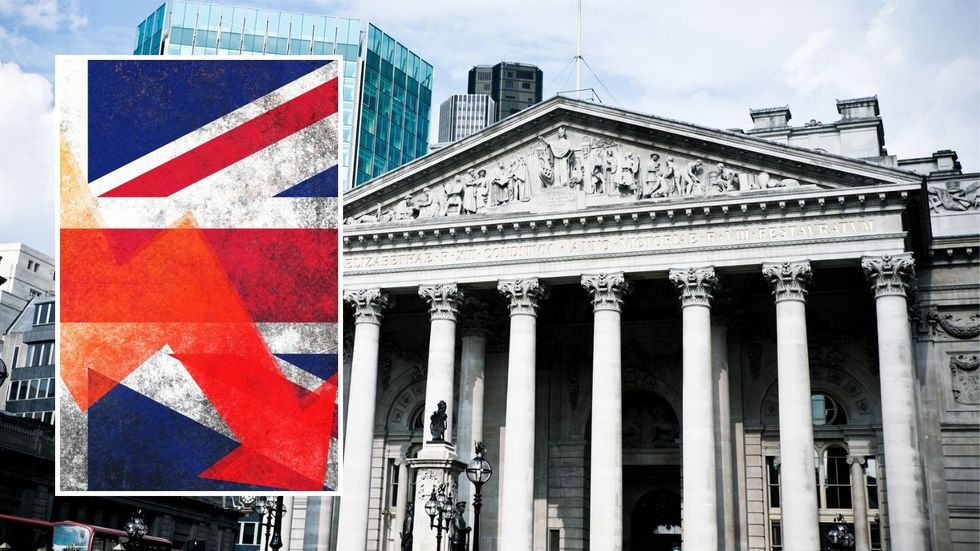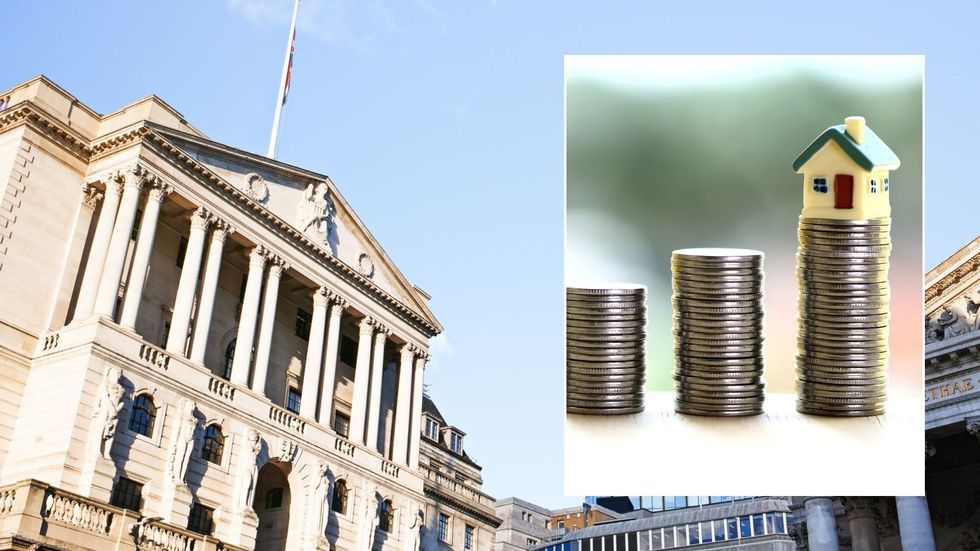The Bank of England's MPC is meeting today
PA
As it stands, the Bank of England's base rate is sitting at five per cent
Don't Miss
Most Read
Trending on GB News
The Bank of England has voted to keep the base rate at five per cent in a blow to borrowers, particularly those with mortgage and debt repayments This comes after the central bank delivered a "clear message" it would not cut interest rates too quickly.
During today's meeting, Bank policymakers voted by a majority of eight-to-one to rates at five per cent. However, one ne member of the Monetary Policy Committee (MPC) opted to vote on slashing interest rates by 0.25 percentage points to 4.75 per cent.
Most economists were prepared for rates to remain the same following the committee's meeting today. In August, the Bank of England's MPC narrowly voted to reduce the base rate from a 16-year high of 5.25 per cent.
Governor Andrew Bailey cited the financial institution was able to do so because inflationary pressures had "eased enough".
He said: “Inflationary pressures have continued to ease since we cut interest rates in August. The economy has been evolving broadly as we expected. If that continues, we should be able to reduce rates gradually over time. But it’s vital that inflation stays low, so we need to be careful not to cut too fast or by too much.”
Despite this, Bailey emphasised that committee members "need to be careful not to cut interest rates too quickly or by too much".
Do you have a money story you’d like to share? Get in touch by emailing money@gbnews.uk.

In August, the Bank's MPC voted to slash interest rates
GETTYOver the last two years, interest rates have been raised in an attempt to ease the UK's soaring inflation rate. In October 2022, the consumer price index (CPI) rate skyrocketed to 11.1 per cent.
This led to the interest attached to mortgage and debt repayments increasing dramatically. In recent months, inflation has fallen to around the Bank's target of two per cent which led to the central bank slashing rates in August.
Russell Gous, the editor-in-chief of TopMoneyCompare, emphasised that it is "no surprise" that the Bank is keeping the base rate at its current level.
The money expert said: "With inflation pressures persisting, the BoE’s decision signals caution, especially given its forecast of inflation rising again toward the end of the year While inflation may have played a role in the decision to hold rates, the UK’s sluggish Q2 growth and a strengthening pound add complexity to the outlook."
Earlier this week, figures from the Office for National Statistics (ONS) revealed that the CPI rate for the 12 months to August remained unchanged at 2.2 per cent.
Sanjay Raja, the chief UK economist for Deutsche Bank, noted that the latest inflation figures would not have been "enough to trigger a surprise rate cut" today.
"Instead, the MPC will likely take this as a positive sign that underlying price pressures are easing, and could warrant a further dial down of restrictive policy in November, when it conducts its next forecast update," he explained.
Alastair Douglas, the CEO of TotallyMoney, warned that inflation will likely continue to be an issue for Britons in the months ahead.
Douglas shared: "Inflation is proving to be stubbornly persistent.
"While the Bank of England and the previous Government celebrated their success of halving it by last Christmas — it’s not halved again since, which means it remains above the two per cent target, and is expected to increase before the New Year."
LATEST DEVELOPMENTS:
 Millions of homeowners are facing soaring mortgage costGETTY
Millions of homeowners are facing soaring mortgage costGETTY Other central banks have proved to be more aggressive with interest rate reductions recently. Last week, the European Central Bank slashed rates for the second time in 2024 despite concerns about the German economy.
Yesterday, the Federal Reserve confirmed US base rate has been slashed by 50 basis points. The Bank of England's next MPC meeting is on November 7, 2025.
Reacting to today's base rate freeze, Shadow Chancellor Jeremy Hunt urged the new Labour Government to "work hard" in the fight against inflation,.
"New employment laws that put up costs for business will ultimately feed through into higher prices so they should think again before damaging UK competitiveness as they currently plan," Hunt claimed.








